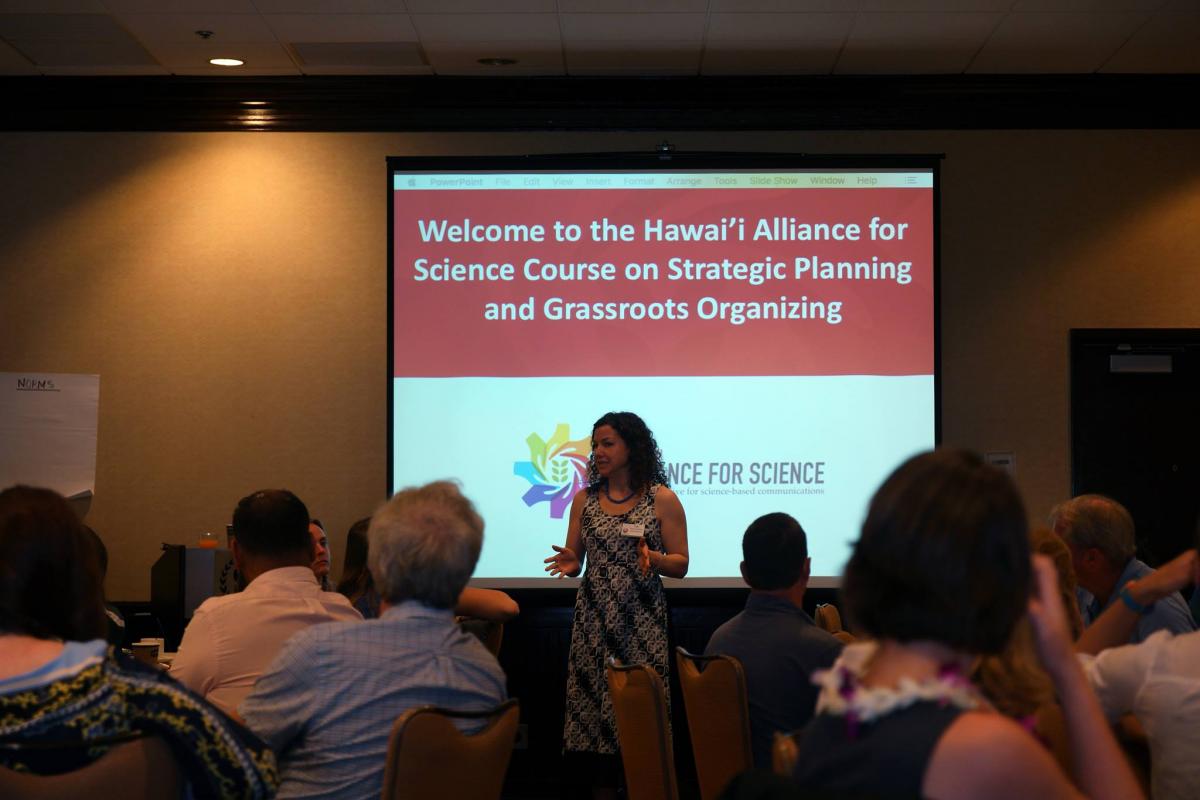
Hawaii is now the newest member of the Cornell Alliance for Science for global network.
The Hawaii Alliance for Science was formed on Dec. 8 at the completion of an intensive training course in strategic planning and grassroots organizing offered by the Cornell Alliance for Science and led by 270 Strategies.
We have to lift our voices, or agriculture will be gone in Hawaii, said Joni Kamiya, whose family grows papaya on Oahu.
The group represents farmers, scientists, educators and community members from the islands of Maui, Molokai, Hawaii, Kauai and Oahu, and joins groups that have already formed in Africa, Asia and Latin America.
In recent years, Hawaii has become ground zero for anti-GMO activism, due to the cultivation of parent seed crops in the Islands. Hawaii also grows papaya genetically engineered to resist the destructive ringspot virus the first commercially approved transgenic food crop developed by public sector scientists.
Through the training, members of the Hawaii Alliance for Science gained the tools they need to support evidence-based decision-making and agricultural innovation in the Islands.
I m here for the small farmer, said Roy Berger, who is working toward organic certification of his dryland watercress farm on Hawaii Island. People need a better understanding of biotech and agriculture.
Agriculture replenishes our aquifers, said Taryn Dizon, who works for Pioneer, a seed company that has been operating in Hawaii for 50 years. It s part of our traditions and history.
Kamiya said she was motivated to get involved with the Cornell Alliance for Science because she was concerned about the tactics of anti-GMO activists. This was a very different movement that was designed to silence people, Kamiya said. It was very intimidating.
Kamiya was accepted into the first cohort of Alliance for Science Global Leadership Fellows in 2015. The skills she learned there prompted her to begin working to create an Alliance for Science group in her home state.
This is going to help the small farmers, she said. We are fighting to preserve our roots, our way of living in Hawaii. We are working to create an atmosphere where people aren t afraid to speak up.
Jan TenBruggencate, who grew up on a pineapple plantation on Molokai, told of a childhood where he easily mingled with those who worked for the plantation and resided in the Japanese, Filipino and other ethnic-specific camps.
The anti-GMO movement is the opposite of the celebration of diversity that is the cornerstone of Hawaii, he said. Instead of being able to go to every camp, you have to choose one.
Kamiya said she is seeing a change in the political landscape, with more people willing to defend agriculture and learn about biotechnology and other scientific innovations that will help farming succeed in Hawaii. It starts with all of us not being afraid and being empowered to speak up, she told the group. If we give up, who loses? Our future loses. We have to be the ones who make a difference.
Sarah Thompson, an entomologist and agricultural communications consultant on Kauai, will serve as the volunteer statewide coordinator of the Alliance. Groups in each of the four Hawaii counties will conduct their own activities and outreach, in support of statewide goals.
